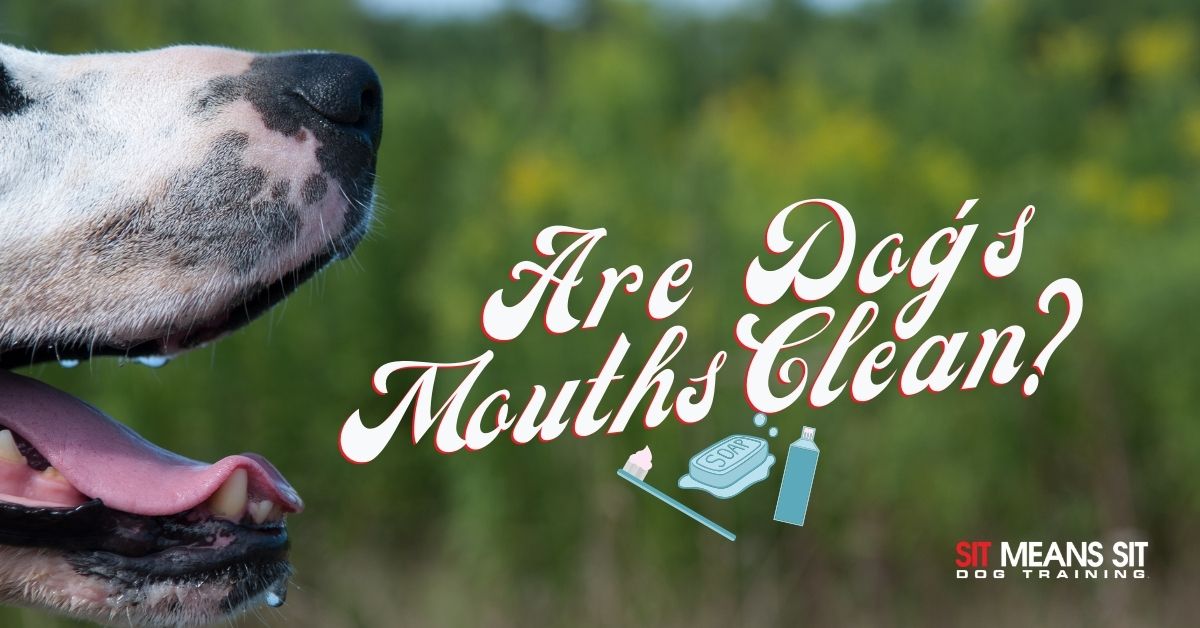
Are Dogs Mouths Clean?
There is an old saying which states “Your dog’s mouth is cleaner than your mouth.” That seems like a ridiculous thing to imagine, but dogs’ mouths can be relatively clean.
Bacteria
This myth probably stems from the fact that the bacteria in dogs’ mouths are very different from the bacteria in human mouths. There are hundreds of different types of bacteria living in your dog’s mouth like Pasteurella, Bartonella, salmonella, and many other different kinds. These are relatively normal and have many functional reasons for being there such as helping their intestinal tracts. Some bacteria, though, can pop up if your dog licks themselves after going to the bathroom, eating debris from the yard, or getting into things they are not supposed to. By ingesting these nasty bacteria, it could lead to parasites or ringworm.
The bacteria can differ from dog to dog as it can also stem from their food, genetics, and environmental factors. Eating harder kibble generally leads to less plaque on the dog’s teeth over time, ultimately lending fewer bacteria. Breeds can be a factor in mouth bacteria as smaller dog breeds typically are more susceptible to mouth diseases. As previously mentioned, your dog’s environment may affect their mouth’s bacteria if they get into things they are not supposed to.
Does Bacteria Lead to Sickness?
Generally, your dog’s mouth bacteria will not make you sick, but if you are immunocompromised, you should be cautious. Some things you can do to stay vigilant are not allowing your dog to lick you or washing your hands after you do get licked. By keeping your dog’s oral hygiene acceptable and giving them regular dental care, you can prevent yourself from getting sick. Another idea is to get your dog’s stool regularly checked for parasites, heartworm, and other parasites. Generally keeping your dog’s belongings, such as bedding, clean is another good way to take precautions.
Oral Hygiene
Keeping your dog’s mouth clean is very important, especially if you own a smaller dog breed. As previously mentioned, smaller dog breeds are more likely to have mouth diseases. Also, similar to humans, dogs’ gums are highly vascular and are the place most likely for bacteria to enter the bloodstream. Bacteria in the bloodstream could lead to heart diseases further down the road.
Your dog is not able to keep up its own oral hygiene, so it is up to you to take care of your pup. Brushing their teeth regularly is an easy way to improve the quality of a dog’s oral hygiene. If your dog is not a fan of getting its teeth brushed, you can try just brushing with a gloved finger, trying flavored kinds of toothpaste, or having a professional do this.
You can also try dental treats and rinses as an easier way to keep their hygiene on track. Although less effective than brushing your dog’s teeth, dental treats can keep your dog occupied and they will enjoy the experience more. When giving your dog treats, you should keep an eye on them as it could be a choking hazard. Dental rinses are liquids that you can add to your dog’s water that helps with bad breath.
If your dog has continued bad breath or seems to have oral irritation, communicate with a veterinarian to find the right option for your furry friend.
